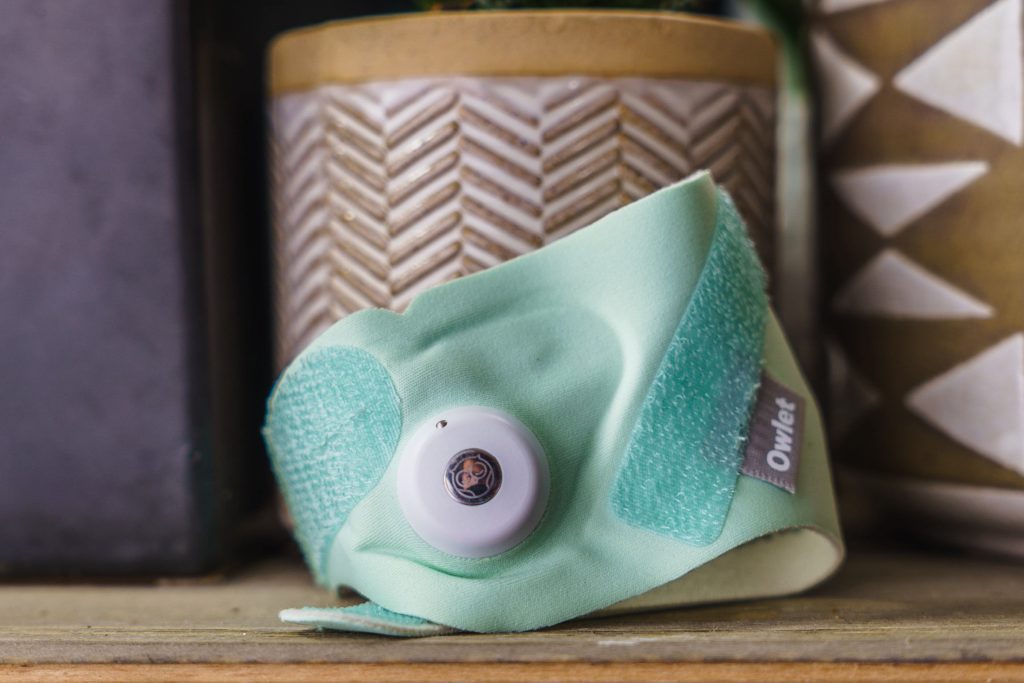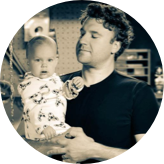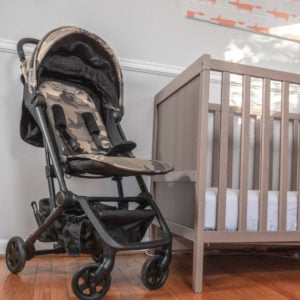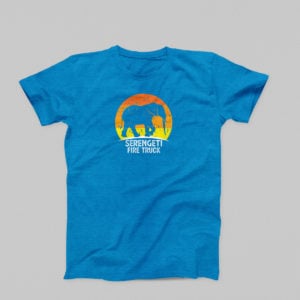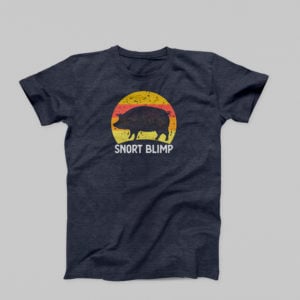The Owlet Dream Sock (formerly known as the Owlet Smart Sock) has been a hot topic at Fathercraft for several years. On one hand, Owlet products have the potential to give parents something they previously regarded as a myth – peace of mind.
On the other hand, rumors of increased anxiety, false alarms, and an ominous FDA letter in 2021 might leave parents hesitant to include the Owlet on their registry.
So, what’s the verdict? In this Owlet review, we give the full story, including why we stopped recommending the product in 2021 and why – after retesting the product this year – we might just be recommending it again.
Read on to learn more about:
- The Owlet FDA Letter
- What is the Owlet Dream Sock?
- The Owlet Cam 2
- Our Owlet Review
- The Verdict
- Pricing and Where to Buy
- Frequently Asked Questions
But first, let’s address the elephant in the room – Did Owlet receive an FDA letter? And why?
Was the Owlet discontinued?
In late 2021, Owlet received a warning letter from the FDA regarding the misclassification of its Smart Sock as a medical device. It’s worth noting this warning had to do with the company’s marketing, not the actual performance of this product, but at the time, it raised a lot of parents’ concerns – for us at Fathercraft included (we take our baby tech very seriously). In response, Owlet changed the Smart Sock to the Dream Sock. Before testing the freshly named Dream Sock, we stopped recommending the product to our readers, despite an initial positive review from Fathercraft. Now, we’ve had the chance to re-test Owlet’s Dream Sock, along with the Owlet Cam 2, so we’re here with a new review. What is the Dream Sock? How is it different? Is it worth the relatively hefty price tag? Read on to find out.
Please note Fathercraft is reader-supported, meaning, at no cost to you, we may earn a commission if you buy after clicking an affiliate link. Learn more.
What is the Owlet Dream Sock?
The Dream Sock — formerly known as a “smart sock” — isn’t literally a sock. It’s a fabric contraption that wraps around your baby’s foot to hold a sensor in place against her skin. The soft fabric fits snuggly so it doesn’t slip off with middle of the night tosses and turns, but since you choose the right size for your baby and use velcro to put it in place, it’s not uncomfortably tight either. The Owlet uses “PPG technology” – the kind of tech found in other wearables that detect things like heart rate – to track “sleep quality indicators.” These indicators include:
- Heart rate
- Average oxygen level
- Movement
- Wakings
While measuring these indicators, the Owlet will notify parents via lights and sounds if their baby’s “comfort or sleep quality changes.”
The Owlet Dream Sock vs. the Owlet Smart Sock
If you’re thinking that the Dream Sock sounds awfully similar to the discontinued Smart Sock, you would be correct. So, what changed? There are two key differences. The first is that the Owlet Dream sock is advertised to measure sleep quality. If there is a concern with sleep quality, you will get alerted. While parents may still find this beneficial (after all, indicators like heart rate are still factored into Owlet’s sleep quality readings), Owlet no longer claims to provide medical alerts with the Dream Sock (for that, you’ll need the FDA-cleared, prescription-only, Owlet BabySat – more on that later).
The second key change is the addition of “predictive sleep technology.” Owlet’s app will give parents information about wake windows and when their baby should sleep next (if you’ve never had a baby, let us be the first to tell you: knowing when your baby should sleep isn’t as intuitive as it sounds).
So, is the Owlet Dream Sock still worth it, even after the changes? We’re in a bit of a baby shortage here at Fathercraft, so we enlisted our friends Jon and Andrew – and their newborn, Gordy – to find out.
Unboxing
The full Owlet Smart Sock package costs $299.99. Owlet also offers a payment plan with Affirm, so you can slowly pay off the device with payments as low as $25 per month. Additionally, Owlet offers a 30-day Peace of Mind Guarantee. So if there is anything you do not like about the product in the first 30 days after purchasing it, you can return it — plenty of time to understand if the product meets your needs.
Here’s what comes in the box:
- One Dream Sock sensor
- Four fabric socks (fitting babies from 5-30 pounds, up until about 18 months)
- One wireless charging base
- Access to the Dream app and predictive sleep technology
You can also choose to order a Sock Plus, which fits children up until 5 years of age.
Oh, and you can select from 4 different colors when ordering the sock, just in case you want your baby to be monitored in style.
Setup
Setting up the Owlet is fairly straightforward. You download the iOS or Android app to your phone or tablet, which guides you through the setup process and connecting the Owlet base station to your home wifi network (required for the Owlet app to function).
Answer a few basic questions about your child, set your preferred range, and you’re good to go.
The sensor slides easily into the sock, and you choose the sock size that best fits your child at any given time. Here’s the “sock” and sensor. The sensor slides in through the slit in the sock
Note: For setup, both the Owlet device and your phone or tablet need to be connected on a 2.4GHz network. Once you’re initially connected, you can move your phone or tablet back to a 5GHz or hidden network (this means the Owlet works with a dual-band monitor). If this all sounds like gibberish, you can check your Wifi’s name; if it doesn’t have a “5G” next to it, or if there’s a version without the “5G” next to it, you’re in the clear. Most devices only connect to 2.4GHz, so if you’ve had luck in the past, you should be able to connect your Owlet.
The Owlet sensor connects to the base station (which is designed to go in the parents’ bedroom) via Bluetooth, and has a range of about 100 feet.
Owlet phone app
The base station allows you to quickly see your baby is ok with its light ring that displays different colors for different kinds of alerts, but for more details, head to the phone app.
In the Owlet app, which is available for iOS and Android, you’ll see your baby’s heart rate & blood oxygen levels, base station status, and battery level. You’ll also be able to view sleep history and trends, Owlet’s analysis of sleep quality, and predictive sleep information (i.e., when your baby is due for their next rest).The app will also serve as your parent unit if you’re using the Owlet Cam or Owlet Cam 2, Owlet’s companion video baby monitor (more on that below).
What about the Owlet Cam?
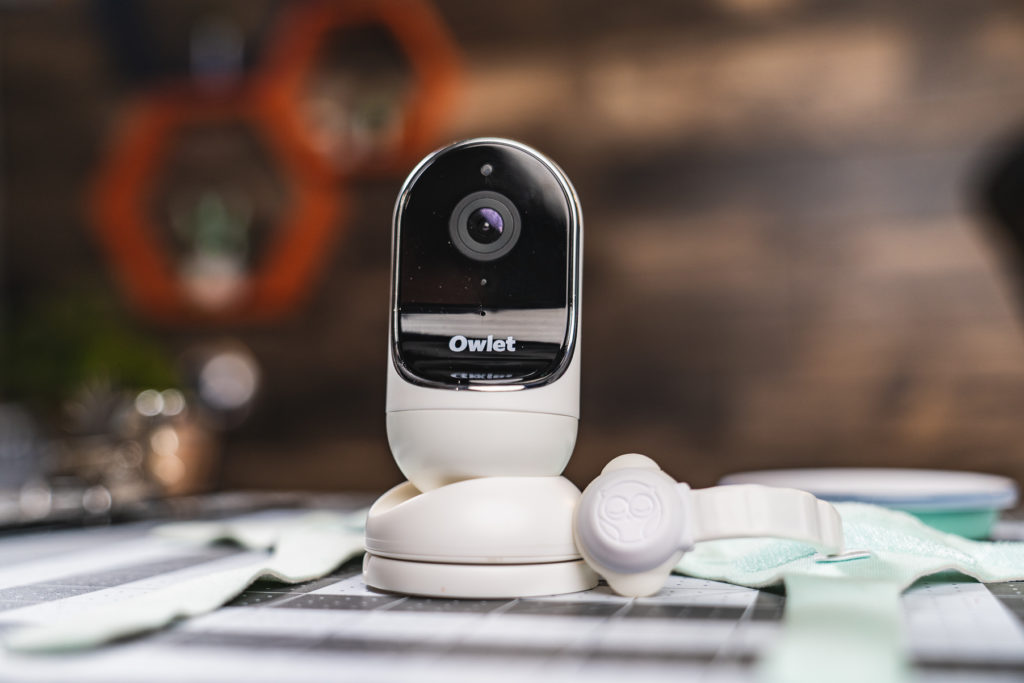
By itself, the sock doesn’t provide audio or video. So, Owlet now has two options for video monitors to purchase if you’d like to be able to hear and see your baby (which many parents do):
- The Owlet Cam, released in 2019
- The Owlet Cam 2, released in 2022
At Fathercraft, we’ve now tested both of these cameras. We found the original 2019 Owlet Cam pretty bare-bones from a feature perspective (especially when compared to something like the Nanit Plus—our review here), but it has a high-quality camera, great night vision, and the ability to turn the Owlet into the complete package. Both Owlet Cams also include 2-way talk, motion & sound alerts, and background audio (meaning you’ll be able to hear your baby while doing other stuff on your phone when this feature is activated). As a spoiler, Andrew and Jon found the Owlet Cam 2 to be “the most rock-solid piece of tech” they’ve had. In addition to everything listed above, it also features cry notifications, the ability to save and share video clips, and new exclusive color options.
Owlet Monitor Duo
The Owlet Monitor Duo isn’t some completely different product, it’s just the Dream Sock and Cam sold as a bundle. The Owlet Cam 2 is $159 as a standalone item, or you can buy it in a package with the Dream Sock for a discounted package total of $399. You can also save a few dollars by getting the original Dream Duo package (Owlet Dream Sock + original cam) for $369. One nice thing about purchasing this way is that it makes the complete package HSA/FSA eligible, if you’ve got one of those.
Our latest Owlet review
Let’s get to the information you’ve been waiting for – do we recommend this product?
Fathercraft has tested the Owlet twice. In 2020, our friends Paige and Todd tried the old Smart Sock for 3 months – and they were impressed. Their newborn, Miller, was in the NICU and came home with supplemental oxygen. They found the Owlet to be reliable and it gave them a peace of mind with continued monitoring. They also were able to confirm its accuracy, because while he was still on the supplemental oxygen, they had to complete medical-grade home oxygen tests. This meant that they got to compare the Owlet’s results directly to the medical-grade, professional oxygen test administered by a nurse. It was accurate to the professional oxygen test within a few percentage points every single time. They also mentioned they were able to monitor Miller closely when attempting a (nurse-approved) trip up a mountain – the Owlet helped them see that Miller was starting to struggle, and they came back down. You can watch our original review below:
Of course, in 2021, Owlet received that FDA letter — and we stopped recommending it until we could try out the re-branded sock.
Now, our friends Andrew and Jon have tested both the Owlet Dream Sock and the Owlet Cam 2. They’ve been testing since they brought their newborn home back in early 2023, and they are continuing to use the sock now (8 months later, at the time of writing) — so, they like it.
We’ll get into “the awesome” and the “wish it were different,” but, generally speaking, both Andrew and Jon said they feel much better with the sock than without it. While both of them recognize that “billions of babies have survived without the sock,” they felt the Owlet Duo was the best thing for them monitor-wise, and they noted how they realized they had more monitoring on their newborn the first night home than they did at the hospital.
Does the Owlet increase anxiety?
Since our initial review, the medical community has expressed some concern over the Owlet sock. Despite Owlet’s claim that 96% of Owlet owners report more peace of mind when using the Owlet, some medical professionals warn that the Owlet could increase anxiety, especially with reports of “false alarms.” Additionally, some medical professionals find the Owlet unnecessary, claiming many babies that young don’t need the Owlet’s level of monitoring. However, Jon is a doctor, and he emphasized he’d rather have the Owlet than not have it – and that false alarms (which were rare) weren’t as scary with the camera.
Ultimately, baby sleep is anxiety-inducing for many parents, and for some – like Jon and Andrew – the extra monitoring helps more than it hurts (by the way, we cover safe sleep practices and SIDS/SUID risk-reduction here.)
So, what specifically have our Fathercraft friends liked so much about the Owlet?
The awesome
The phone alerts: These were instant, giving them confidence that they could get to their baby as soon as he started to show any signs of distress.
Travel: The Owlet sock is easy to travel with, which makes a huge difference, especially if you’ll be changing elevations
The Dream Sock Fit: The Dream Sock fit great and didn’t bother Gordy or Miller.
Accuracy: When Todd and Paige saw that their sock’s readings matched the medical grade readings, they were sold. Similarly, Andrew and Jon never felt that false-alarms were an issue (and they trusted it more than other smart technology, like the Cradlewise). The Duo Package: Andrew and Jon loved the complete monitoring made available through having both the Owlet Cam 2 and the Dream Sock. When an alarm sounded, they could quickly see what was going on (for example, they could see that Gordy was awake and putting himself back to sleep).
The ‘wish it were different’
Metric History Glitches: After about a month, Andrew and Jon suddenly couldn’t see history for some metrics.
It’s a Little Pricey: In our original review, Paige and Todd mentioned that they felt they still needed video monitoring. And Jon and Andrew definitely enjoyed having the Owlet Cam – but purchasing a video monitor after spending the $299 on the sock can get pretty dang pricey.
Hotels and the Cam: The Owlet Cam 2 can’t connect to open wifi networks; so, although the sock travels well, the cam doesn’t work in hotels. This is to keep the connection secure from hackers, so – while potentially inconvenient – you may decide you’re okay with this.
Scares: The sock alerts parents if it stops monitoring. Although this type of false alarm was pretty rare, Andrew and Jon admitted it could get scary for some people (Note: The light ring displays a different color when the sock stops monitoring due to a technical issue, which may help with this).
Changing Sock Sizes/Dream Sock Plus: The sock fit great for Gordy until he outgrew the smaller sock. When he started using the larger sock, it fit a little big for a few weeks.
The ultimate Owlet Sock verdict — Is the Owlet worth it?
After using the Owlet Duo for 8 months, Jon and Andrew agree with our original reviewers – the peace of mind provided by the Owlet is worth the hefty price tag. No product is perfect, but they both felt better having the Owlet despite any of the “wish it were different” considerations.
To wrap up, let’s dive into some frequently asked questions about the Owlet Smart Sock.
Pricing and where to buy
For fast, free shipping and the company’s 30-night guarantee (plus occasional special offers—Owlet is offering a free leopard-print sock set with purchase of a Sock or Duo at the time of this writing), shop Owlet on the company’s website.
- The Owlet Dream Sock is available for $299. (HSA/FSA eligible)
- The Owlet Monitor Duo (Sock + Cam 2) is available for $399 (HSA/FSA eligible)
- The Owlet Cam 2 is available for $159. (Not HSA/FSA eligible)
Alternatively, you can also purchase the Dream Duo 2 on Amazon, with price varying by color, or the Dream Sock by itself (on sale for $234 at the time of writing).
Additional questions
Do pediatricians recommend Owlet?
Like we discussed earlier, some medical professionals are hesitant to recommend the Owlet (or flat-out don’t recommend it at all, due to increased anxiety). However, some of this tension has been resolved with the FDA-Cleared Owlet BabySat, which requires a prescription and provides alerts based on oxygen saturation and pulse ranges set by physicians.
Do you need WiFi for the Owlet?
The Smart Sock connects to the base via Bluetooth, meaning it can function without wifi, which is nice in case your wifi stops working or your phone battery dies. However, to connect the base station to your phone so you can get notifications on your phone, you’ll need to connect it to your home wifi network.
You will also need wifi for the camera if you choose to purchase it.
What is the range of the Owlet?
The Owlet sock and base have normal Bluetooth range, meaning about 100 feet. If your base station is connected to wifi, you can receive alerts and monitor your baby via the smartphone app anywhere you’re connected to wifi or have a cellular connection (if enabled).
How long do the Owlet batteries last?
The sock’s battery will last for 16 hours on a full charge (which takes 90 minutes), and you can get an 8 hour charge in 20 minutes. Then you’ll need to recharge it, and you’ll need to get in the habit of dropping the sock’s monitor into the base station for charging when you remove it from your child.
How do you clean the Owlet Smart Sock?
To clean the Smart Sock, all you will need to do is remove the sock sensor, hand wash in lukewarm water and mild detergent, and hang dry.
Can you use an FSA/HSA account to pay for Owlet?
You sure can, at least for purchase of the Smart Sock or the Smart Sock & Cam bundle. Purchasing the Cam by itself is not HSA/FSA eligible, as monitors that are eligible have to include a breathing/movement monitoring component.
What is PPG Technology?
PPG stands for Photoplethysmography, and it is a non-invasive technology that detects volumetric changes in blood circulation. It’s used in many wearables – like your Apple Watch – to detect heart rate. Owlet uses PPG tech in its sensor to detect pulse.
What’s next?
Thanks so much for reading! Looking for more? You can:
Check out our in-depth baby gear buying guide here
Or, browse our free resources for new and expecting parents here.
Editor’s Note: This review was originally published in November 2018, but was updated in November 2019 to include new information on Owlet Cam & additional details and FAQs, and then updated again in December, 2020 to include info on the Smart Sock 3. Finally, it was updated in September 2023 to include Jon and Andrew’s thoughts on the Dream Sock and Cam 2, with a minor editorial update in January 2024. We truly have been on quite the journey with Owlet.
